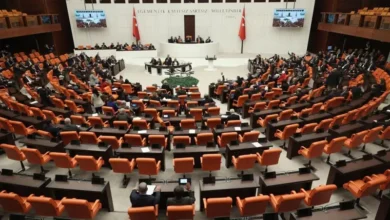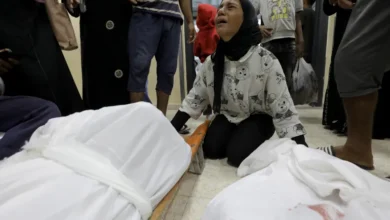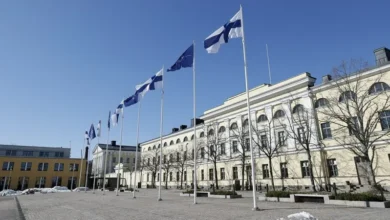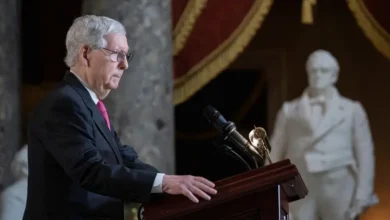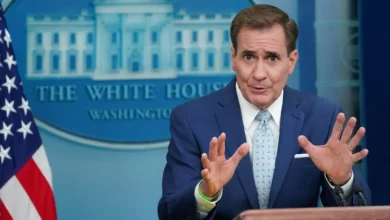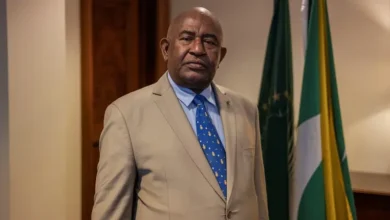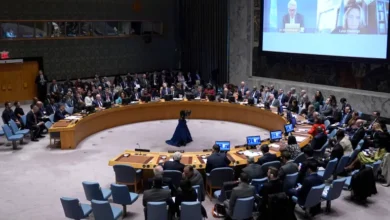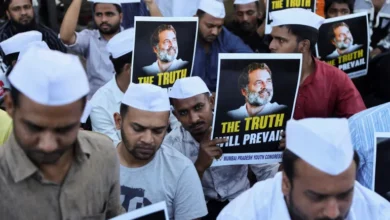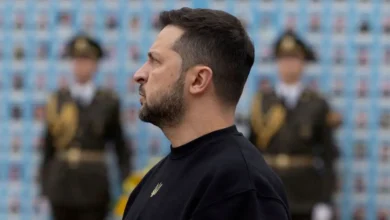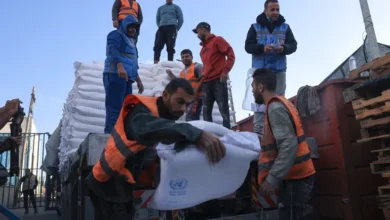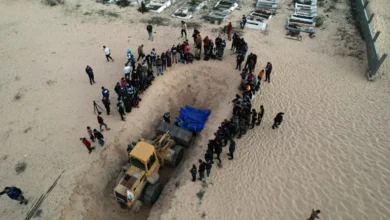In Ukraine, peace talks no longer taboo as Russia’s war rages on
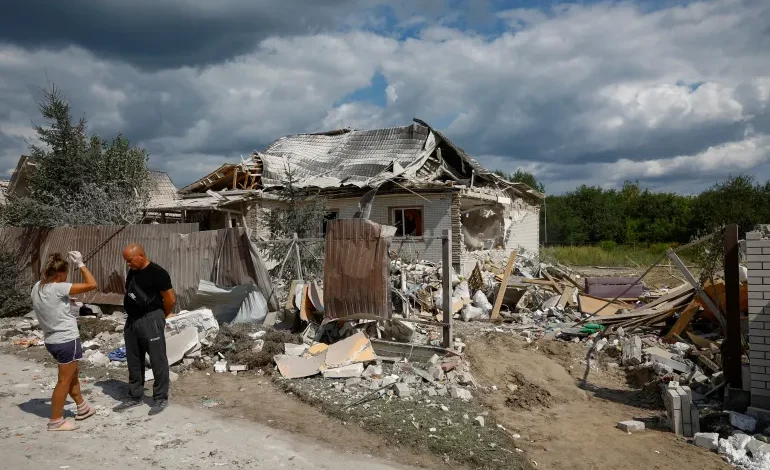
For Oleksandr Antybysh, peace negotiations with Russia should be based on several conditions.
“A return to Ukraine’s internationally recognised borders, a ban for Russia to conduct military drills no closer than 300km [186 miles] from Ukraine’s borders”, the bearded serviceman said as he counted out the conditions on his fingers.
Antybysh, who co-heads a volunteer group that makes gadgets for speedy gun loading in the northern Ukrainian city of Chernihiv, also told Al Jazeera he wants to see the “full reparation of all losses, material and moral, that have to be calculated by an international commission”.
But as Moscow slowly and bloodily advances in Ukraine’s southeast and Kyiv wages a daring incursion into western Russia, the prospects of such conditions seem distant.
Russia is currently throwing thousands of barely trained servicemen onto the front lines to push through Ukrainian defences and is pummelling besieged towns and villages with glide bombs,
Even so, in recent months, the Ukrainian president has been cautiously talking about peace talks with Moscow – after more than two years of denying their very possibility.
In mid-July, Volodymyr Zelenskyy said Russia should be invited to the second round of a peace summit in Switzerland.
Russian diplomats were not invited to the first round, which took place in the resort of Burgenstock in mid-June and was attended by representatives of 92 nations.
His words reflect a growing trend among war-weary Ukrainians who wake up to the wailing of air raid sirens or the heavy, heart-stopping thud of explosions, fumble for matches and power banks among frequent, hours-long blackouts and grieve for enlisted friends and relatives who die or are wounded.
An opinion poll released by the Zerkalo Tizhnya news outlet in mid-July showed that 44 percent of Ukrainians are ready for peace talks – the highest such number since the full-scale Russian invasion began in February 2022.
Only 23 percent of Ukrainians wanted such talks in May 2023, according to a similar poll, when Ukraine was jubilant about Russia’s retreat from several key areas in late 2022 and overwhelmingly believed in the success of an upcoming counteroffensive.
But the counteroffensive in the summer of last year fizzled out because of an unfocused, multipronged push against heavily fortified Russian positions along the 1,000km (600-mile) front lines, a growing shortage of Ukrainian servicemen, and months-long delays of Western arms and ammunition supplies.
This year, Ukraine has kept losing ground, albeit Russia’s gains don’t seem catastrophic – less than 1,300sq km (500sq miles), mostly in the southeastern region of Donetsk.
The July 15 survey showed, however, that 35 percent of Ukrainians were opposed to talks of any kind.
Two-thirds of those polled said they still believed in Kyiv’s military triumph over Moscow, and 51 percent said the return of all occupied areas – including the Crimean Peninsula, annexed in 2014 – was a condition for any peace deal.
Observers believe the number of Ukrainians favouring the peace talks will only grow.
“We see a trend. The number of those who want talks is increasing,” Kyiv-based analyst Volodymyr Fesenko said. “In fact, many people don’t express their opinion, but this is more of a silent support for the war’s end.”
However, both Ukrainian leaders and the public have a “definite” understanding that Kyiv can’t possibly agree to territorial concessions, he said.
